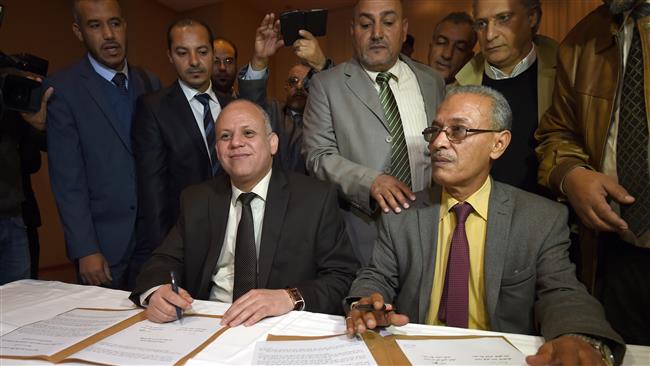-
Tips for becoming a good boxer - November 6, 2020
-
7 expert tips for making your hens night a memorable one - November 6, 2020
-
5 reasons to host your Christmas party on a cruise boat - November 6, 2020
-
What to do when you’re charged with a crime - November 6, 2020
-
Should you get one or multiple dogs? Here’s all you need to know - November 3, 2020
-
A Guide: How to Build Your Very Own Magic Mirror - February 14, 2019
-
Our Top Inspirational Baseball Stars - November 24, 2018
-
Five Tech Tools That Will Help You Turn Your Blog into a Business - November 24, 2018
-
How to Indulge on Vacation without Expanding Your Waist - November 9, 2018
-
5 Strategies for Businesses to Appeal to Today’s Increasingly Mobile-Crazed Customers - November 9, 2018
Libya parliament rejects UN-backed unity government
Meeting in the eastern city of Tobruk, 89 out of 104 members of the House of Representatives rejected the proposed new government, demanding wholesale changes.
Advertisement
The United Nations and Western diplomats have urged Libyans to back the agreement as a step toward ending the political chaos and strife that have gripped the country since the 2011 ouster of longtime dictator Moamer Kadhafi.
“We voted against endorsing the government and ask… to be presented with another government”, parliamentarian Ali al-Gaydi said.
Libya now has two rival administrations and parliaments; the internationally recognised authorities based in Tobruk and a rebel-backed authority holding power in the capital, Tripoli.
This Council proclaimed last week, the composition of the national unity government in which all the regions of Libya are represented, in the hope that it will be validated by the Parliament.
Under the agreement, a nine-member PC was named and tasked with selecting the national unity government.
Parliament has “rejected the government because of the number of ministers”, considered too large, told AFP MP el-Salhine Abdelnabi.
Another lawmaker, Omar Tantoush, said he voted against the government because it did not “respond to current challenges”.
Tobruk-based parliament votes against unity government with rivals in Tripoli, and demands cabinet reshuffle.
The UN had warned that the rejection of the agreement by the parliament could further fuel the militancy in the oil-rich North African country.
While their support is not necessary for the unity government to start operating, they could prevent it from working out of the capital.
Islamic State militants have stepped up attacks in recent weeks, targeting the country’s oil infrastructure.
Thomson ReutersLibyan General Khalifa Haftar, chief of army loyal to internationally recognized government, speaks during news conference in Amman, Jordan The armed forces allied to the eastern government are led by Gen Khalifa Haftar, a former Gaddafi ally who has become one of the most divisive figures among Libya’s rival groups.
Advertisement
Fears the jihadists are establishing a new bastion on Europe’s doorstep have added urgency to diplomatic efforts to bring together Libya’s warring factions.





























